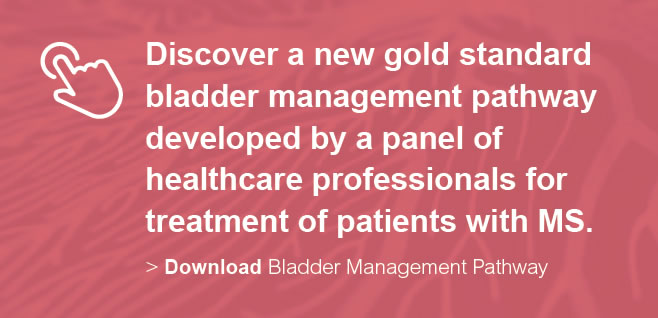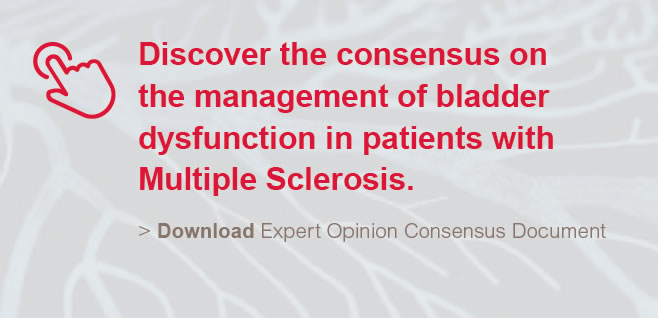The bladder pathway has been developed by panel of clinical specialists and patients with MS to help healthcare professionals deliver a gold standard of care through a team approach to managing the MS bladder.
In January 2022 a multidisciplinary panel of clinicians and patients published a new consensus document on bladder care for people with MS (PwMS), highlighting the need for improved awareness, education and management of bladder conditions in this area. At the point of diagnosis one in ten PwMS report bladder symptoms1 and after ten years almost all will experience some bladder problems2. Bladder dysfunction can seriously impact a person's health and quality of life.
With patient caseloads escalating and MS cases growing at a rate of 2.4% annually,3 this pathway has been developed to provide a team approach to bladder management to improve MS bladder outcomes and reduce the physical and financial burden of UTIs in PwMS.
The bladder pathway is designed to help you navigate the professional challenges you face in managing the MS bladder and address changing patient needs at different stages of the MS condition. In adopting a team approach including healthcare professionals and patients, inconsistencies in managing the MS bladder can begin to be addressed.


- Panicker J.N. Neurogenic bladder: epidemiology, diagnosis, and management. Semin Neurol. 2020; 40(5): 569-579
- Panicker J.N. Neurogenic bladder: epidemiology, diagnosis, and management. Semin Neurol. 2020; 40(5): 569-579
- Optimum clinical pathway: Multiple sclerosis (July 2019). Secondary User Services (SUS) database


